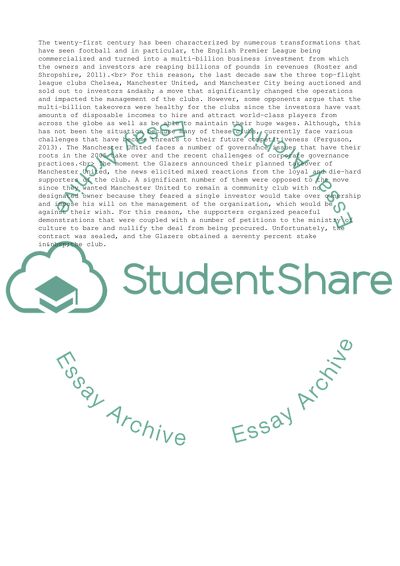Cite this document
(Management Dilemma at Manchester United Term Paper - 1, n.d.)
Management Dilemma at Manchester United Term Paper - 1. Retrieved from https://studentshare.org/management/1687379-professionalization-of-modern-sport-for-profit-or-glory
Management Dilemma at Manchester United Term Paper - 1. Retrieved from https://studentshare.org/management/1687379-professionalization-of-modern-sport-for-profit-or-glory
(Management Dilemma at Manchester United Term Paper - 1)
Management Dilemma at Manchester United Term Paper - 1. https://studentshare.org/management/1687379-professionalization-of-modern-sport-for-profit-or-glory.
Management Dilemma at Manchester United Term Paper - 1. https://studentshare.org/management/1687379-professionalization-of-modern-sport-for-profit-or-glory.
“Management Dilemma at Manchester United Term Paper - 1”, n.d. https://studentshare.org/management/1687379-professionalization-of-modern-sport-for-profit-or-glory.


